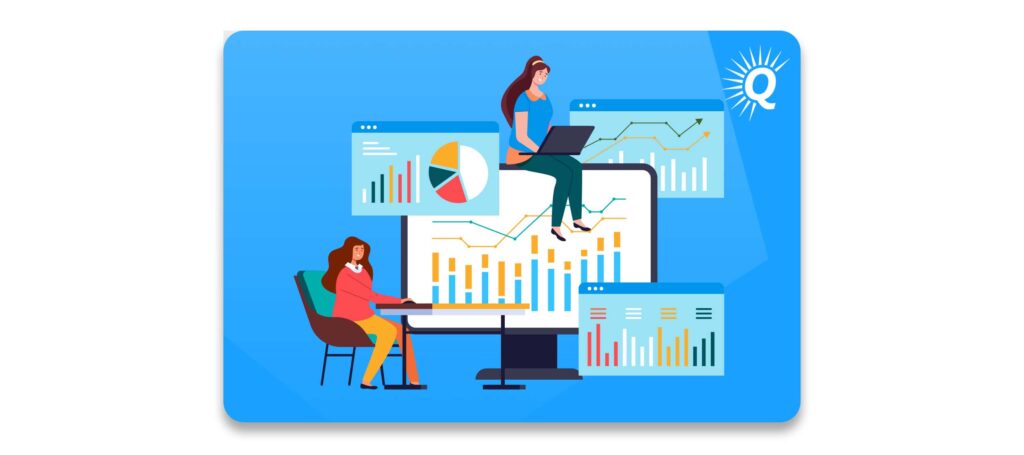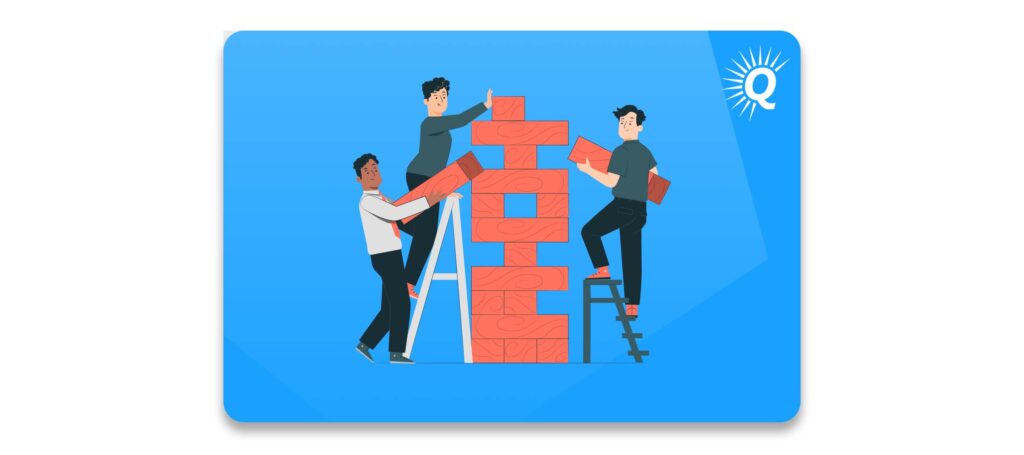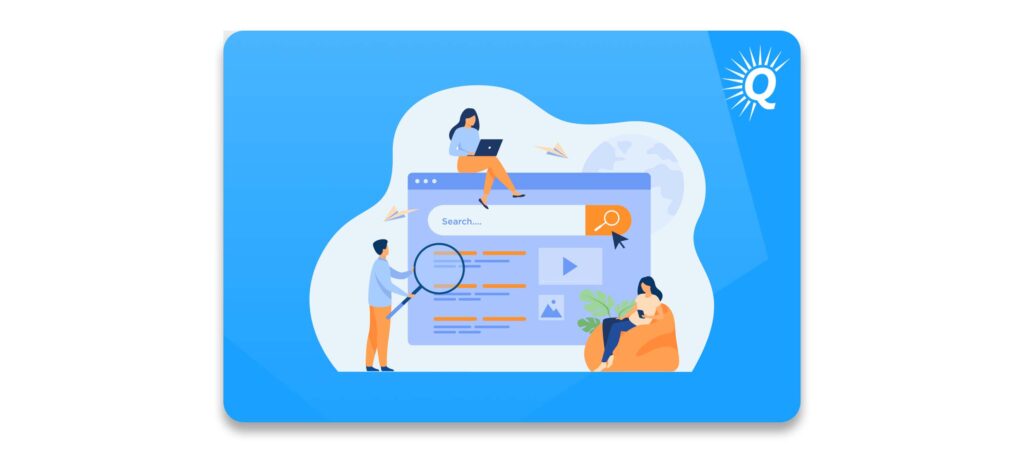Topics:
Never Miss a Beat - Get Updates Direct to Your Inbox
FILTER:


Four Key Elements to Consider When Selling Your Website
By Quiet Light
You’ve invested significant time and energy in building an established website, and now you’re thinking about planning your exit. Selling your website is an opportunity to realize the full value of the asset you’ve created, and it can be a true game-changer for your personal, professional, and financial future. However, it’s not a process you want to jump into without an effective strategy.
When you understand the ins and outs of the selling process, you’ll be in a better position to attract the right buyers and maximize the value of your online business.
In this article, we cover what you need to know about how to sell an established website, including:
- How to decide when it’s the right time to sell your business—and when to reconsider
- How to determine the value of your website
- A bird’s eye view of the selling process so you know what to expect each step of the way
- How long it will likely take to find the right buyer for your website
Related Articles
Tips to Increase Your Website’s Revenue
How to Sell Your Content Website For Top Dollar


Is Now the Best Time to Sell Your Website?
Before we get into the “how” of selling your website, let’s take a look at what is motivating you towards your exit. There are many reasons why entrepreneurs sell their websites, and it’s important to know your “why”.
Having clarity about your exit will give you a great sense of meaning—and drive on the days that you feel like you’re drowning in paperwork. But it also ensures that you have a compelling, authentic story to share with prospective buyers.
All buyers will eventually ask: “If it’s such a great business, why are you ready to sell?”
You need to spend time determining when you want to sell your business, but more importantly, if the reasons you want to make an exit are good reasons. It’s crucial to know whether you’re really ready to sell your website or if you’re trying to solve a frustrating (but temporary!) problem with a permanent solution.
When is the best time to sell an established website? First, let’s check out some solid reasons to sell your business, and then we’ll dive into situations where it’s best to hold off on jumping into the sales process.
A few common reasons that entrepreneurs choose to sell your business include:
- Other business opportunities
- Financial strategy
- Personal challenges
You want to pursue other opportunities
If you’re an entrepreneur, you love new beginnings and exciting opportunities. So it’s no surprise that many business owners sell so they can free up resources to pursue new ventures.
After selling your website, utilize the funds to pursue new business opportunities, invest in other ventures, or simply enjoy greater financial freedom. This can result in personal growth, new experiences, and the ability to explore your passions and projects.
If you’re the kind of person who loves New Year’s resolutions and the first page of a new notebook, you may reach the point where your current website just doesn’t give you the same thrill that it did in the beginning. Selling your established website could help you consolidate your resources and focus on your next big online business plan.
Selling allows you to diversify your investments
When you’re running a website, it can seem like it takes up your entire life. You spend your waking hours crafting quality content and then you dream about Google analytics. This is especially true if your personal finances are dependent on the success of your business.
While running an established website is your job, your website can also be one of your most valuable assets. You might get to a point where it makes sense to move equity out of your website to diversify your investments. Even if your website is thriving, there is still risk when all of your eggs are in one basket. Selling your website is a great way to free up capital to invest somewhere else.
Other obligations need to rank higher
You might be considering selling your business because you’re sorting through a challenge in your personal life. Maybe you’re dealing with a recent diagnosis, grieving the death of a friend or family member, or financial obligations can all impact your ability to invest in your business.
Personal changes and challenges can put pressure on you to sell—and quickly. If your website is performing well, you can expect great offers and a quick closing period.


However, if your website is not in good shape, you will find yourself under pressure to accept an offer that is less than desirable. Ultimately, the emotional toll of sustaining a business and sorting through personal challenges is far greater than any amount of potential earnings you could see when you wait to sell.
Four Factors to Consider So You Can Avoid Sellers’ Regret
For many entrepreneurs, getting a business valuation is when they discover they’re not quite ready to sell yet. In fact, if you go through the valuation process with a business broker at Quiet Light, we often end those initial calls with a list of tasks we suggest you do before going to market.
Some reasons you may want to wait on selling your website include:
- Untapped potential
- Problems with documentation
- Negative growth trends
- You’re emotionally done with the business
You’re not tapping your full business potential
If there are exciting growth opportunities within your website, you need to seize that untapped potential. Invest in new marketing strategies, seek feedback from customers, and implement necessary changes. The consequences of not fully realizing your business potential can include missed growth opportunities, stagnant revenue, decreased customer satisfaction, and personal frustration.
Taking proactive steps to unlock your business’s full potential can lead to increased success and profitability. Not only does this boost your business’s valuation, but it can also reduce your stress and increase your satisfaction as an entrepreneur!
Your documentation needs improvement
Your business has to be well documented if you’re going to go to market. Documentation is one of the first things that we look at when someone reaches out to us at Quiet Light about selling their business.
If you don’t have clear financials and records to verify information, you need to make an appointment with your accountant and get your records in order before moving forward with the selling process. If you attempt to sell your business without organized documents, it can lead to a loss of trust from potential buyers. Messy financials also hinder accurate valuation of your business and cause the due diligence process to drag on. Ultimately, it may result in missed opportunities and lower offers for your business.
A prospective buyer has to be confident that they’ll be able to succeed. If you don’t know where bank statements and tax documentations are in your office or on your computer, you’re not ready to sell.


Your growth is trending down
Negative growth trends hurt your business value. So if your business is trending down, it is usually worth spending some time turning things around in order to bump your business valuation number up.
Sometimes your growth is trending down because of things completely out of your control—an industry disruption or shift in your niche. If that’s the case, it can be challenging (if not impossible) to reverse that trend quickly.
But if the reason behind negative growth trends is something temporary like a supply chain issue, it’s worth holding off on the sales process so you can resolve temporary issues. It might take months to reverse a trend, so you’ll need to be patient before selling to the right buyer.
Running the business is draining you
Selling your established website might seem like a great option for you, especially if you’re experiencing burnout, struggling with work-life balance, or find yourself being called away by obligations that take you away from your business.
But when you’re deciding when to start the sales process, remember that most problems have more than one solution. Take time to look over all your options so that you avoid cheating yourself out of value when it’s the right time to sell your website.
What Is Your Website Worth?
The first step in selling your blog or content site is figuring out exactly how much your site is worth.
First let’s take a look at valuation methods. Then, we’ll take a closer look at the factors that can impact the value of your website.
Valuing your blog with the SDE Method
Because your website is an online business, you can usually use the SDE multiple method to value your blog. There are two key components of the SDE valuing method: the SDE and the multiple.
SDE stands for seller’s discretionary earnings—the pre-interest and pretax profits your blog or content site makes before you consider noncash expenses, one-time investments, owner benefits, and any unrelated discretionary expenses or income. In other words, SDE is the total amount of money your blog generates for a single owner.


After you know what your SDE is, you multiply that number by the multiple. So if your website generates $100,000 in SDE and is valued at a 3x multiple, it’s worth $300,000 ($100,000 x 3 = $3,000).
When you’re selling your website, you might choose to work with a qualified business broker. When you go through the valuation process with Quiet Light, one of our business brokers looks at every aspect of your website to determine how your website lines up with our Four Pillars of Value. These pillars are:
- Growth
- Risk
- Transferability
- Documentation
Working with a business broker can ensure you calculate your SDE accurately and land on a purchase price that honors the website you’ve spent time and energy building.
Brokers can also help identify opportunities to grow the value of your website. Past and current growth trends in your site have an impact on how prospective buyers perceive its value. Discovering new ways to grow your website can attract a higher sales price in the future. This is especially true if you want to sell within the next year.
Pageviews and visitor metrics
You already know that page views and website analytics are crucial. You can pour time and energy into creating an online course. But if no one is interested in purchasing the course and learning what you have to teach, your site will not be valuable to a buyer. When a buyer is browsing websites for sale, pageviews are one of the top metrics that they’re looking at.
In addition to the pageview numbers, buyers are also interested in growth trends.Do you have a steady increase in website visitors? Or are you wanting to sell your site because your metrics are trending downward? Buyers are interested in purchasing websites that are steadily increasing in pageviews and readership.
Another thing to consider is your search rankings. Do you have a content strategy that is making consistent progress? Have you met goals for keywords consistently? Buyers want to invest in websites that have a clear content strategy that helps them reach a target audience.


Marketing and branding
What is the experience for someone who visits your website? For instance, maybe you’ve spent time creating a website that helps people manage their personal finances. Is it easy to search your website? Do you provide resources that answer their problems? Is your marketing consistent across your website and emails, or does someone wonder who you are when they see your email land in their inbox?
Websites that are well designed, visually appealing, and intuitive to navigate are interesting to both browsers and buyers.
In addition to web design, your email list also impacts the value of your site. Buyers want to see a subscriber list that is growing steadily. Maybe you only use your email marketing list to communicate with readers when you’re launching a new product. But buyers see a thriving email marketing list as growth potential. It’s ripe with customers who are engaged and interested in what you have to say.
Your site might offer paid memberships—maybe members unlock content or can participate in digital conversation and community. If that total number of members is growing month over month, your site is going to be worth more.
Social media presence
In addition to content, your website value is also impacted by your social media presence. If you have a strong following on social media platforms like Facebook, Instagram, Twitter, and Tik-Tok, it’s much more attractive to advertisers, sponsors, and potential buyers.
Take the time to look at your social media metrics. A strong social media presence shows an interested buyer that they can reach a wide (and engaged!) audience quickly.


Ignoring these metrics may result in a buyer perceiving your social media presence as ineffective or stagnant, undermining the overall perceived value of your business. This impacts your ability to achieve a successful sale at a desirable price point.
If your social media skills are a bit rusty, spend time researching and implementing best practices. And if you’d rather not spend your time making Instagram reels or TikTok videos, outsource to someone. In today’s digital driven world, this is an investment that’s well worth your money.
Revenue diversification
How does your website make money? This is another factor that impacts how much your blog is worth.
Let’s say that your website started out as a blog for new parents about which baby gear to invest in. Everytime someone clicks a product through one of your Amazon affiliate links, you earn money. But if you generate a major source of income through your affiliate links, buyers will see the lack of revenue diversification as a risk.
Similarly, if you’re only generating revenue from one popular post or product page, you need to diversify your income. Buyers find more value in a site with a wide range of income sources. This might include advertisements, sponsored content, affiliate marketing, digital or physical products, and memberships or subscriptions.
Get a free, individually-tailored valuation and business-readiness assessment. Sell when you're ready. Not a minute before.Thinking of Selling Your Business?
Your Step-By-Step Guide to Selling an Established Website
Selling your website can be intimidating, but like all things, it gets simpler when you break it down into small, manageable steps.
In order to land a profitable exit and mitigate as much stress as possible, it’s important to know the steps involved in selling a website. Generally, the phases of selling a website are:
- Preparation
- Listing
- Discovery
- Letter of intent
- Due diligence
- Transition planning
- Asset purchase agreement
- Closing
- Training and transition period
Preparing to sell your website
Getting your website ready to sell is one of the most important things you can do to maximize your profit and win favorable deal terms. During this phase, you’ll also create a marketing package for your website. This will include your asking price, performance data, and the story of your business. Often your marketing package is your first impression with a potential buyer.
In an ideal world, you’ll be able to spend one to two years preparing before you go to market. If you rush through this stage of the process, you’ll earn less than you could have if you’d adequately prepared.


Listing your site for sale
After your business is ready to sell, it’s time to make the official listing. There are many different online business marketplaces where you can list your company directly. During this stage of the process, you can also hire a business broker to help you attract more buyers and sell your site quickly.
The discovery period
If a buyer is seriously interested in purchasing your established website, they’ll reach out and start a conversation with you. You might be fielding phone calls, talking to multiple prospective buyers at once, and answering a boatload of emails. This period of the sales process is called the discovery phase.
During discovery, buyers are going to want to review your financial records, website analytics, traffic and customer statistics, and any contracts you have with vendors, employees or contractors. They’ll want to know more details about your ecommerce store, products or courses you offer, and customer reviews.
It’s common for you to ask prospective buyers to sign a non-disclosure agreement during discovery. This will legally require them to maintain confidentiality of the business information you share with them during this stage.
Making things official with a letter of intent
If someone is still interested in your website after the discovery period, it’s time to make it official and sign a letter of intent. This is a document that states that the buyer is intending to purchase your website for a price you’ve agreed on, as long as certain criteria are met.
It’s important to remember that the letter of intent is just the beginning of the official documentation. While it’s not the final sale document, it is a serious indicator that this is the buyer who is going to purchase your company. Once it’s signed, you’re ready for the due diligence process.
Conducting due diligence
This step of the sales process is when a buyer will go through your business financials and documentation with a fine-toothed comb. They’re wanting to make sure that everything you claimed about your website analytics, customer statistics, and domain name are what you said they are. In other words, they’re making sure that they’re purchasing the website they think they’re purchasing.
Due diligence can leave you with a few extra gray hairs. To help the process go smoothly, answer any questions honestly and quickly. At this point, it’s common for buyers to hire an expert to facilitate the due diligence process. This can offer peace of mind for everyone involved.


Planning for the transition
You survived due diligence! Now you’re ready to plan for what happens after the sale is complete. You’ll negotiate the exact selling and transition terms, create merchant accounts, and set up bank accounts.
Signing the asset purchase agreement
The asset purchase agreement, or APA, is a legally binding document that lists out all of the terms of the sale in detail. Both you and the buyer will sign the APA to finalize the deal.
Closing
Pop the champagne, it’s time to close this deal! At this point, you’ll transfer assets to the new business owner. The buyer will put the agreed upon funds in an escrow account and then you’ll transfer everything tangible and intangible over to the buyer. Once everything is squared away, the funds are released to you.
Training and transition
Don’t leave for that celebratory vacation quiet yet, though. Most website sales will include a post-sale training period. During this phase, you’ll train the new owner and any of their staff on how to run the website. Depending on the agreement, this could last anywhere from a few weeks to months.
How long will it take to sell your website?
Just how long is it going to take to sell your website? That’s a question that every entrepreneur wants to know as they enter into the sales process. We hate to disappoint you, but we don’t have a crystal ball that we can gaze into here at Quiet Light.
We can take a look at some averages, though. Over the years, we’ve worked with business owners in a variety of industries. In the world of mergers and acquisitions, the sales process can take an average of six to eighteen months.


Fortunately for you as an online business owner, selling a website doesn’t take nearly as long. From the time that your established website is listed for sale, if it’s well positioned, then thirty to ninety days is considered an average timeline. However, it’s important to note that if you’re the owner of a large business or one in need of some repair work, your timeline might be longer than the average.
As a business owner, you can take steps that will not only help you secure the best price and favorable terms but also expedite the sale of your business with minimal stress. So instead of asking how long it will take to sell your website, ask yourself the following questions:
- How is your website currently performing?
- Is there a demand for websites in your industry or niche?
- Does your brand have a positive reputation?
- How are you going to connect with potential buyers?
How your website is performing
The overall performance and profitability of your website play a significant role in how quickly your business will sell. Potential buyers are more likely to be interested in websites with a solid track record of generating consistent traffic, revenue, and profits.
A website with a proven monetization strategy, strong SEO presence, and engaged user base will generally attract buyers more quickly.
Current market demands in your niche
Another factor that will impact how quickly you can make your exit is the niche or industry that your website operates in. Websites in high-demand niches or industries are much more likely to attract buyers.
Emerging or trending industries will gather more interest from potential buyers looking to capitalize on new opportunities.
Your branding and public recognition
A strong, defined brand presence and positive reputation within your industry can make your website more attractive to buyers. A well-established brand with a loyal customer base is going to give buyers confidence in the long-term viability of your website.
If your website is full of negative product reviews or you have a poor online reputation, you’ll deter potential buyers, which will stretch out the selling process.


How you sell your business
Where you list your established website for sale also impacts how fast your business will sell. Typically, you can choose between listing your site for sale on a business listing platform or working with a business broker.
An experienced business broker is an invaluable tool when it comes to finding the right buyer. By sharing your business listing on social media platforms and engaging in direct outreach to prospective buyers, the right broker can help you expand your pool of qualified buyers.
The bigger the pool, the more competition there is among prospective buyers who are interested in your website. And more competition means more favorable deal terms for you.
Conclusion
At Quiet Light, our business brokers have all bought or sold online businesses. If you want to know more about valuation or the selling process, or if you have any other questions about selling your established website, you can always reach out for a no-obligation valuation.
We’d love to meet you and hear about the story of your website and the dreams you have for the future!
Outsmart the startup game and check out our listings. You can request a summary on any business without any further obligation.Buy a Profitable Online Business





